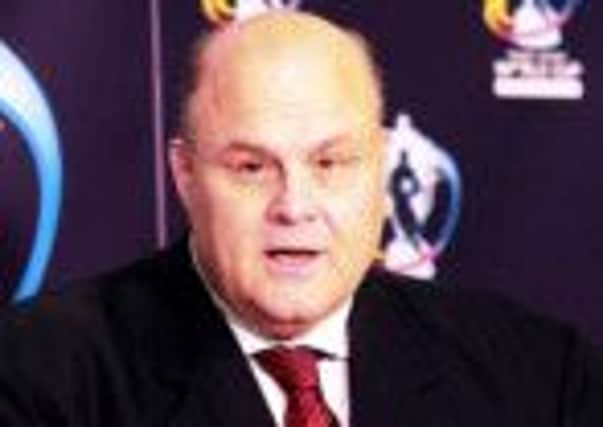World Cup profit can help Celts stand on own feet


The governing body came in for some heavy criticism after they withdrew the funding for Scotland, Wales and Ireland during the World Cup.
Scotland, in particular, went on the offensive, making the news public in the hours before their shock quarter-final date with holders New Zealand at Headingley.
Advertisement
Hide AdAdvertisement
Hide AdThey had provided one of the stories of the tournament after defying the odds to reach the last eight for the first time and – just as they were hoping to build on their progress – were understandably upset when learning their funding would end.
However, Wood maintains that the RFL – who have suffered their own financial cuts of late – can no longer be held responsible for the Celtic nations’ development.
“The RFL has been very committed to the international game, putting a lot of energy, effort and resources into trying to bring the Celtic nations up to a set standard,” he told the Yorkshire Post.
“And that’s because, with the greatest respect, the RLIF (Rugby League International Federation) has not been capable of doing that.
Advertisement
Hide AdAdvertisement
Hide Ad“You have to stand locus parentis from the International Federation and part and parcel of the objectives of the World Cup was to give some resource to them to say you need to start taking responsibility for international development.”
Organisers are yet to announce how much profit was made from the Rugby League World Cup, but it is expected to be around £4m.
It will be the decision of the RLIF how best to invest that back into the game, but Wood says they must now be the port of call for the three nations.
“Let’s be really clear about this,” he continued.
“The RFL has spent 10 years pump-priming Scotland, Ireland and Wales to a position where they can compete at a World Cup and we’ve done that in place of the International Federation, who haven’t had the resources to do that job properly.
Advertisement
Hide AdAdvertisement
Hide Ad“Part of Scotland’s development means they are now full members of the International Federation in their own right and that is now the organisation they need to look towards for their development plan.
“The RFL position has been an entirely appropriate one of nurturing Ireland, Scotland and Wales to a position where, if you like, they are developed enough to be members in their own right and then to put a World Cup on that gives some money to the RLIF to say now it’s your responsibility to take these jobs on.
“It’s our responsibility to run our domestic leagues.
“Without peering into other sports, you wouldn’t see Twickenham worrying too much about what development was taking place in Wales, Scotland or Ireland.
“You’d expect the IRB (International Rugby Board) to have a perspective about where development needs to take place and how to resource that.
“That’s the right organisation to take responsibility.”
Advertisement
Hide AdAdvertisement
Hide AdClearly, if the international game is to develop further and not be restricted to the big three of Australia, New Zealand and England it is imperative that Scotland’s relative success in the recent tournament – and that of the likes of Italy and the United States – is not left as a glorious one-off.
Meanwhile, the RLIF, where Wood also sits as vice-chairman, are set to announce in the new year who will host the next World Cup in 2017.
Two bids were put forward in November, a joint effort from the Australian and New Zealand Rugby League plus one from South Africa.
Awarding it to South Africa – uncharted territory for the professional game – would obviously help spread the sport globally.
But it could be a financial risk with the RLIF more likely to make a sizeable profit by staging it in on familiar ground Down Under.